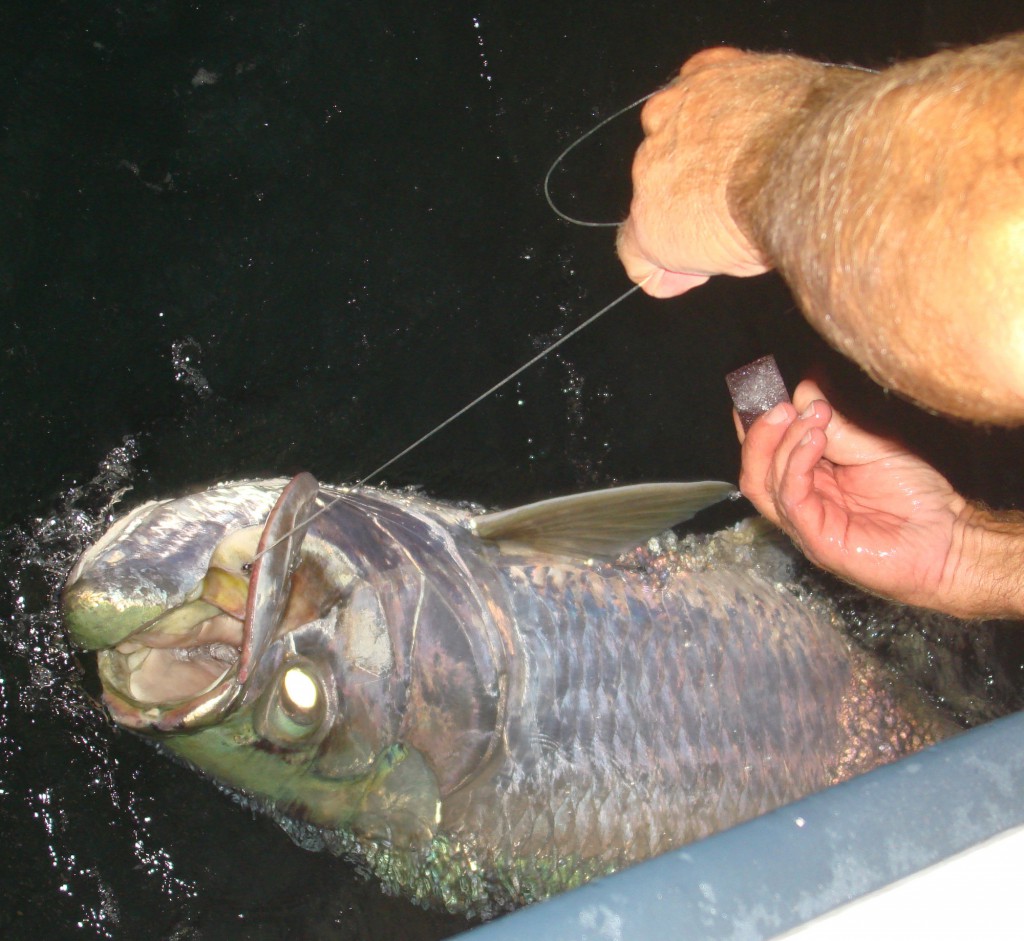April 25, 2013
By Bill Greer
Tagging is so 1990s…

With materials from a free kit, andgler swipes DNA material off tarpon's outer jaw for analysis by the FWC.
Long ago, when Florida anglers began releasing tarpon, some would pull off a scale as a memento of a great battle. By the 1960s, the tables were turned and it was anglers leaving the fish with a memento, a coded plastic anchor tag that could be identified in the event the fish was recaptured.
Today, we're again taking something from the fish—a tiny bit of skin cells.
Kathy Guindon, Assistant Research Scientist with the Florida Fish and Wildlife Conservation Commission (FWC), is overseeing a two-part data collection, split between acoustic tagging and the new DNA fingerprinting effort.
The DNA study is being conducted by the FWC with assistance from the Mote Marine Lab in Sarasota. Skin cells taken from tarpon are processed at the Fish and Wildlife Research Institute in St. Petersburg at less than $3 per sample, said Guindon. Here's how to tag tarpon for the current study.
To obtain samples for testing, an abrasive sponge (which looks suspiciously like a pot scrubber) is used to quickly scrub cells from the outer surface of the fish's hard, bony jaw. When the sponge shows white or silver skin cells, the sample is good and is placed in a small bottle of ethanol. It's harmless to the fish, Guindon says. “Nothing is punctured or pushed into the muscle of the tarpon or placed under a scale as with the old dart tags.”
What part can anglers play? Fishermen have already been recruited from southeastern coastal states from Texas to Virginia. Participants are given a free kit that is good for taking samples from three fish. Each kit includes scrub pads, sample bottles, a pencil and instructions. Samples can be mailed to FWRI Tarpon Genetics, 100 8th Ave SE, St. Petersburg, FL 33701 or dropped at one of the statewide collection locations listed in the kit. Among vital details to be included are date, time and location of capture (county, at least). “We ask anglers to report any tarpon, anywhere, any size,” said Guindon.
The tarpon studies are planned for another 10 years and should generate a lot more information that will be of interest to anglers.
For information or to request a DNA kit, call toll-free (800) 367-4461 or email TarponGenetics@myfwc.com. FS
First Published in Florida Sportsman Magazine, April 2011
Click Here to Have Florida Sportsman Magazine Delivered to Your Door.

